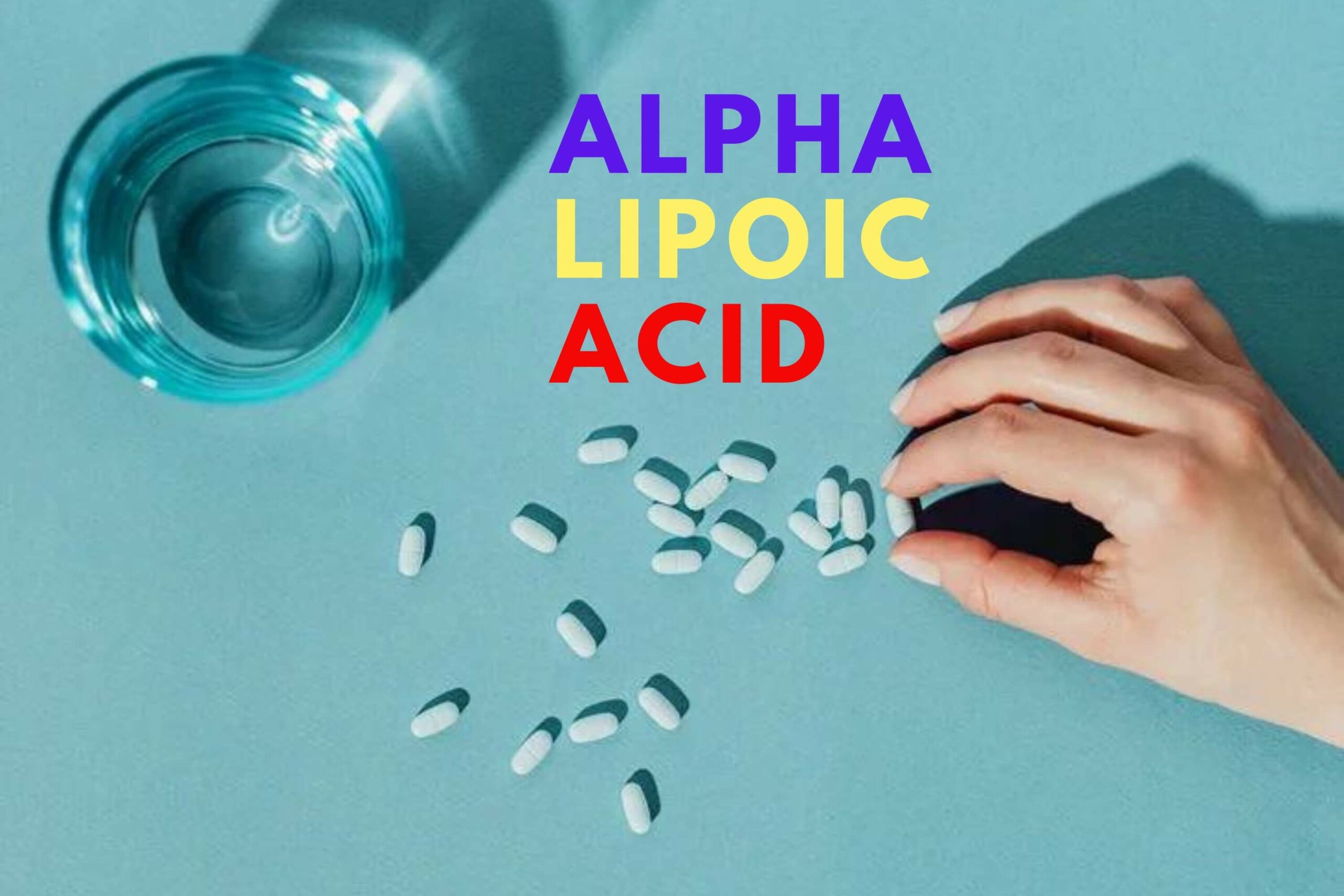Last updated on May 13th, 2023 at 05:52 am
Today, alternative medicine is gaining traction in our world as people seek out different ways of maintaining health and wellness. In this context, nutritional supplements are increasingly being used to meet our nutritional needs beyond what we get from our diet. One such supplement is Alpha lipoic acid (ALA), which has gained popularity due to its potent antioxidant properties and potential benefits in managing health issues such as diabetes and nerve damage. But what exactly is ALA, and what does the research say about its benefits and uses? How can it be utilized effectively, and what dosage is recommended for maximum benefits?
In this blog post, we will explore these questions and more, while providing a comprehensive overview of ALA and its role in the body. From its antioxidant properties to its potential therapeutic effects, we will discuss how this amazing compound can benefit everyone from fitness enthusiasts to healthcare professionals. Whether you are looking to improve your overall health or manage a specific health issue, ALA is a supplement that should be on your radar.
What is Alpha lipoic acid?
Alpha lipoic acid (ALA) is a naturally occurring fatty acid and is present in cells of animals including mammals. It is also known as acetate replacing factor, thioctic acid, and lipoic acid.ALA is produced in the mitochondria where it is needed in the aerobic metabolism of nutrients for energy production. It also acts as a cofactor(helps in biochemical reactions) for at least 5 enzyme complexes which are critical in the production of energy and metabolism.
ALA is one of those rare antioxidants which is soluble in both water and fat, making it possible for ALA to work in every cell of the body, unlike other antioxidants which are either water-soluble ( vitamin C) or fat-soluble (Vitamin E). Due to this antioxidant property of ALA, it is used as a supplement in alternative medicine for its possible benefits which range from – controlling diabetes to increased brain function.
Although Alpha lipoic acid is produced naturally and is available in different foods it is not readily available in high amounts in the body or in naturally occurring sources. That’s the reason most of the ALA supplements use synthetic lab-made ALA, which is categorized as a drug in some countries.
There are two variants of ALA, which are:
- R-LA (Naturally occurring)
- S-LA (Synthetic)
What is alpha lipoic used for?
Alpha Lipoic acid is required in energy production and it is also an antioxidant. Antioxidants counteract oxidative stress caused by free radicals which are those molecules that lack electrons and try to steal them from our cells which disrupts cell function, stability, and life. As an antioxidant, ALA works to counter several free radicals including hydroxyl (OH) which can cause polymerization and protein oxidation. Therefore, ALA is used as a supplement to help with several health issues which are caused or accelerated by the presence of free radicals.
Alpha Lipoic Acid Benefits in Weight Management
Alpha lipoic acid in several studies and trials has been shown to exhibit weight-reducing properties. ALA suppresses hunger and increases energy expenditure. Both of these qualities of alpha lipoic acid increase weight loss and can be used for weight management and to treat obesity.
ALA reduces the hypothalamic activity of AMP-activated protein kinase (AMPK) which is a fuel sensor and triggers the feeling of hunger by helping the hypothalamus sense blood glucose levels. ALA seems to inhibit the function of AMPK which leads to reduced hunger and eventually weight loss.
AMPK works to maintain cellular energy stores, by inhibiting this function of AMPK, ALA allows the body to burn more than normal levels of energy which leads to the usage of fat as an energy source by the body resulting in more weight loss.
Alpha Lipoic Acid Benefits in Diabetes
A recent report published by the WHO shows that from the year 2000 to 2019 the cases of death due to diabetes rose by 3% around the globe and in developing countries, it grew by 13%.
Diabetes is one of the top 10 reasons for deaths around the world, which affects our hearts, and kidneys and can cause our organs to fail. One of the common health issues which diabetes causes is diabetic neuropathy resulting in nerve damage in different organs of the body. Supplementation with ALA has been shown to prevent and reduce nerve damage caused by diabetes.
ALA increases insulin sensitivity of the body organs and promotes insulin-induced glucose metabolism.
In a study on a rat model, R-ALA increased insulin sensitivity by more than 60% in short-term treatment. The study found that R-ALA increases insulin-induced glucose transport and metabolism in insulin-resistant muscles
Alpha Lipoic Acid and Nerve Function
Nerves are a part of the peripheral nervous system which is responsible for voluntary movement, blood pressure, senses, stress response, digestion, breathing, and heart rate. ALA promotes better nerve function by protecting against cell damage and even restoring lost nerve function. It also reduces the stress on nerve cells and has a ‘double cooler’ effect and due to its property of fat and water solubility it penetrates the nerve cells to cool down the nerve engines.
ALA has been proven to restore nerve function in early-stage carpal tunnel syndrome.
In a study with 100+ subjects who were suffering from CTS, ALA supplementation reduced the severity and restored the functionality of nerve damage caused by CTS. This result was in contrast to multivitamins which only resolved symptoms but didn’t restore functionality either partially or fully.
ALA can be used for neuroprotection and to avoid surgery which is the last resort in many nerve damage-related health issues.
ALA has been tested for its efficacy against peripheral diabetic neuropathy (PDN) and its symptoms, including nerve pain. It was found to be effective in controlling the symptoms of PDN and showed no adverse effect on blood sugar levels.
Alpha Lipoic Acid and Heart
Antioxidants and their cardioprotective activities are well established. Antioxidants protect the heart and arteries from oxidative stress which may lead to several cardiovascular diseases (CVD) including cardiomyopathy, heart failure, myocardial infarction, etc.
ALA scavenges free radicals which damage heart cells and acts as a cardioprotective agent to prevent oxidative stress-induced CVD.
ALA stops premature aging of the heart cells which is one of the reasons for endothelial dysfunction which leads to inadequate blood supply to the heart and the body which may result in heart attack and stroke.
Alpha lipoic acid is also used to manage the complications of coronary artery bypass surgery which uses veins and arteries harvested from other parts of our bodies in order to bypass the artery which is no longer supplying enough blood to the heart. ALA reduces cell death and may increase the chances of post-surgery survivability.
Alpha Lipoic Acid Benefits for Skin Health
Alpha lipoic acid has proven anti-aging and anti-wrinkle properties. In a double-blinded placebo-controlled study with multiple participants, it was observed that the gel containing ALA cubosomes reduced wrinkles, removed fine lines, and improved the skin color of the users.
The cell protective property of alpha lipoic acid is also useful for UV damage. It forms a protective layer around the inner layer of the skin and stops skin damage.
Alpha Lipoic Acid and Inflammation
Inflammation in the body can be caused by oxidative stress which leads to several health issues. ALA has antioxidant properties and reduces C-reactive protein levels which are a part of the immune response and rise in concentration due to inflammation.
By reducing inflammation ALA brings down CRP levels in the blood.
Alpha Lipoic Acid and Cognitive Health
As we age our cells start to die faster than their rate of replacement. This natural process affects our brain and cognitive function and sometimes it might lead to diseases like Alzheimer’s. This process of cell death can be accelerated by oxidative stress which can worsen our cognitive health.
ALA might act as a neuroprotective antioxidant to either prevent or slow down the rate of mental health decline.
Hopefully, we will see more research on the use of alpha lipoic acid in the treatment of neurodegenerative diseases caused by oxidative stress, to have a more conclusive understanding of ALA’s effect on neurodegenerative diseases.
Alpha Lipoic Acid Food Sources
Alpha Lipoic Acid is available in our foods in small amounts. Some foods which contain ALA, are:
- Kidney ( Beef/lamb/pork)
- Heart ( Beef/pork)
- Liver (Beef/lamb/Pork)
- Spinach
- Broccoli
- Yeast extract
- Potatoes
However, ALA present in the food is in small amounts and not readily available to be digested. This can be compensated by taking ALA supplements which are now widely available
How Much Alpha Lipoic Acid to Take?
Alpha Lipoic Acid is not yet classified as a nutrient essential for health and has no prescribed RDA. However, through the data of several research studies and trials involving ALA, we can estimate its dosage for different uses.
- As a prophylactic: 50 mg
- As an Antioxidant: up to 100 mg
- For PDN: Up to 1800 mg
- For Insulin Resistance: 600-800 mg
For dosages more than 100 mg, it is advised to consult with your healthcare provider before you take ALA.
Alpha Lipoic Acid Side Effects
ALA in different trials has proven to be safe when consumed under correct guidance. Several studies showed no adverse side effects for over a year. However, that is not to say that there are no side effects of ALA, some possible side effects of ALA are:
- Insomnia
- Fatigue
- Diarrhea
- Rashes
Precautions while taking ALA!
- Avoid taking ALA with Thiamine (Vitamin B1) deficiency.
- Avoid ALA if you are using diabetes medication, if you want to use ALA for your diabetes consult your doctor.
- Avoid it if you are undergoing cancer treatment.
- Avoid it if you suffer from thyroid malfunction.
- Avoid giving ALA to children.
Takeaways
Alpha lipoic acid is a naturally occurring organic compound that is required for the production of energy. It’s a cofactor for 5 enzymes and acts as an antioxidant which has the rare property of being fat and water soluble allowing it to penetrate into different kinds of cells and counter oxidative stress across the body. Alpha lipoic acid acts as a cooler to the nerve engines This compound is used in alternative medicine and has proven benefits in the management of obesity, diabetes, and nerve damage. It is claimed to have anti-cancer, and anti-aging properties as well. Naturally occurring R-LA is not readily available in many foods which can be compensated by taking ALA supplements.







